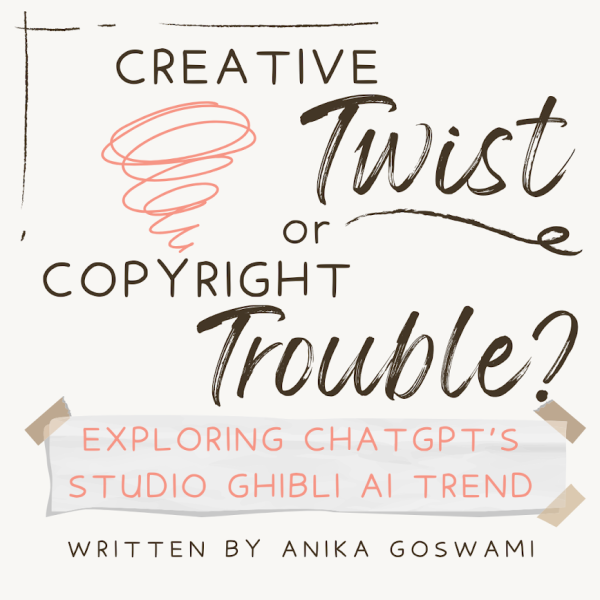SWEET AND SIMPLE
Can this lollipop help reduce cavities?
For most children and teenagers out there it feels like since the dawn of time, two things have remained true: a) no one will ever find out the secret combination to Coca-Cola, and b) candy is one of the best creations of mankind. However, we have all been told at one point or another that “eating candy will rot your teeth.” Let’s face it; these sugary sweets give us temporary happiness but cause lasting effects on our health. How can we enjoy our treats while staying healthy? The answer is easier than you think.
A Dental Dilemma
Most children and teens have gone on a trip to the dentist and had the discomfort of being told they have a cavity. In fact, according to the National Institute of Dental and Craniofacial Research, a staggering 59% of 12-19-year-olds had dental caries in their permanent teeth in 2004. This dental problem is not just something that certain states have dealt with. Many states have been suffering from this problem. In a recent state survey in Ohio, one in five students surveyed had untreated cavities, and nearly half the school-aged children had a history of tooth decay. According to the CDC, in 2016, 52% of children aged 6-8 had a cavity in their baby teeth, and around 57% of adolescents (children aged 12-19) had a cavity in their permanent teeth. This problem had begun to decline over the past years and was on its way to becoming a less major problem. But you remember 2020, right? When the whole world started staying home due to Covid-19? And, of course, you can’t stay home without some chips, soda, candy, ice cream–ah, see, there’s the problem. Comfort food started becoming commonly found in households. Where there’s non-stop sugar, there are cavities and tooth decay. As we try to ease out of the Covid-19 pandemic, we also want to get back to healthier lifestyles. We don’t want to give up the candy, but we also don’t want to get tooth decay (cavities). Luckily, there’s a way to keep both balanced. Introducing the one and only: Zolli!
A modern-day brand is making a zero sugar, vegan, gluten-free, allergy-friendly, natural & kosher lollipop! This lollipop is called a “Zollipop,” which is teeth-cleaning and made with friendly ingredients.
Zollipops are made with Xylitol, Erythritol, and Stevia, which are great for your teeth! After eating a meal or snack, your mouth can become acidic, which is great for cavity-causing bacteria, but can be harmful to us. This bacteria can cause tooth decay and weaken tooth enamel. The ingredients in Zollipops act fast to help reduce the acidity inside your mouth, and help keep your smile clean and healthy!
Kidpreneur Alina Morse
Keeping up with a business is difficult in itself, but this isn’t just any entrepreneur. Alina Morse, founder and CEO of Zolli, was seven years old when the idea for Zollipops was born. She had gone to the bank with her father, and the bank teller had offered her a lollipop. While tempting, seven-year-old Alina knew that lollipops were bad for your teeth, so she asked her dad, “Why can’t we make a lollipop that’s actually good for your teeth?” Alina and her dad started experimenting with different lollipop recipes and marketing styles, until finally, in 2014, Zollipops hit the shelves!
Soon after, Zollipops became very successful, and Alina was featured on the news, shows, and magazines. She was on Shark Tank Kids, The Steve Harvey Show, NBC News, and the cover of Entrepreneur, all within five years of her company’s launch.
Quick Questions…
Does Zolli make any other candy?
Yes! The Zolli company makes Zolli Ball Pops, Zolli Drops, Zaffi Taffy, Zolli PB Cups, and Zolli Caramelz!
Are there any other benefits of Zolli candy?
Definitely! It depends on the candy that you eat, but some are also diabetic-friendly, KETO, dairy-free, and more!
Where can I find Zollipops?
Zollipops can be found at Whole Foods, Target, CVS, Walmart, and Dollar General, just to name a few big retailers (see here for a full list).
Do they actually taste good?
To answer this question, I bought and tried out Zollipops! The type of Zollipops I tasted were different fruit flavors, such as orange, grape, and lemon. The taste is absolutely delicious! Let’s just say that if someone had given me a sugar-packed lollipop and a Zollipop, I would have never guessed that the Zollipop is sugar-free! It tastes just as great as any other lollipop, but with many more benefits. It’s definitely worth trying!
Dental Care at iUP
In a survey among iUP students, I noticed that most students brushed their teeth in the morning and evening. However, many students did not use mouthwash or floss often. Using mouthwash and flossing is very helpful (and strongly recommended by dentists), as they help prevent tooth decay. Using mouthwash can decrease the development of cavities, prevent plaque buildup, strengthen enamel, and fight gum diseases. Flossing has similar benefits and is especially helpful if done before brushing your teeth. The American Heart Association has also found that there is a link between oral health and heart health. By taking care of your oral health, you might be able to help prevent heart diseases! The American Heart Association conducted a study, during which they saw that “…those who said they brushed less than twice a day for less than two minutes had a three-fold increased risk compared to those who said they brushed at least twice a day for at least two minutes.”
With this in mind, I asked whether our iUP students have comfort food in their house and whether they’d had a cavity or not. The results were surprising, considering that many students don’t use mouthwash or floss often. All of the students said they had comfort food (or eat it often), but a little more than half the students surveyed said they hadn’t gotten a cavity yet (woo-hoo!). Nevertheless, iUP students mentioned that they were looking to stay healthy. Brooke Bolinger, 10th grader and iHoot Section Editor, said that, “My family and I have ice cream every Friday night. Super bad for you, but I am a very competitive athlete so all the training I do balances it out (or so I tell myself). I haven’t had ice cream in a while though, it does make me feel very unhealthy and I choose something like yogurt over ice cream sometimes.” Alaina, another iUP student, also said that “…I did have a stash of chocolate that my mom gave me for when I needed them and craved them, but I haven’t restocked because I know that they can be bad for me and my teeth.”
With a simple switch from regular candy to Zolli candy, students can find a long-overdue solution to tooth decay and cavities! They can stay healthy while enjoying some candy, and after all, who doesn’t like a nice treat every once in a while?
Works Cited:
(2018, July). Dental caries (tooth decay) in adolescents (age 12 to 19). Retrieved May 17, 2022, from https://www.nidcr.nih.gov/research/data-statistics/dental-caries/adolescents
(2021, January 25). Cavities. Retrieved May 17, 2022, from https://www.cdc.gov/oralhealth/fast-facts/cavities/index.html
Candy, Z. (2021, May 21). How Zollipops Works. Retrieved May 19, 2022, from https://zollipops.com/how-zollipops-works/
(2020, February 27). Mouthwash and Oral Health: San Antonio, TX. Retrieved May 26, 2022, from https://www.smilestructure.com/blog/use-mouthwash-and-reap-the-benefits/
(2021, August 16). Bad toothbrushing habits tied to higher heart risk. Retrieved May 26, 2022, from https://www.heart.org/en/news/2018/11/07/bad-tooth-brushing-habits-tied-to-higher-heart-risk
Lindberg, S. (2021, February 17). Benefits of flossing your teeth: 5 reasons to Floss regularly. Retrieved May 26, 2022, from https://www.healthline.com/health/benefits-of-flossing#benefits

Hey! My name is Yadiz, this is my fourth year at iUP and my fourth year at iHoot. My biggest passion is serving God, I play the drums for my worship youth...







